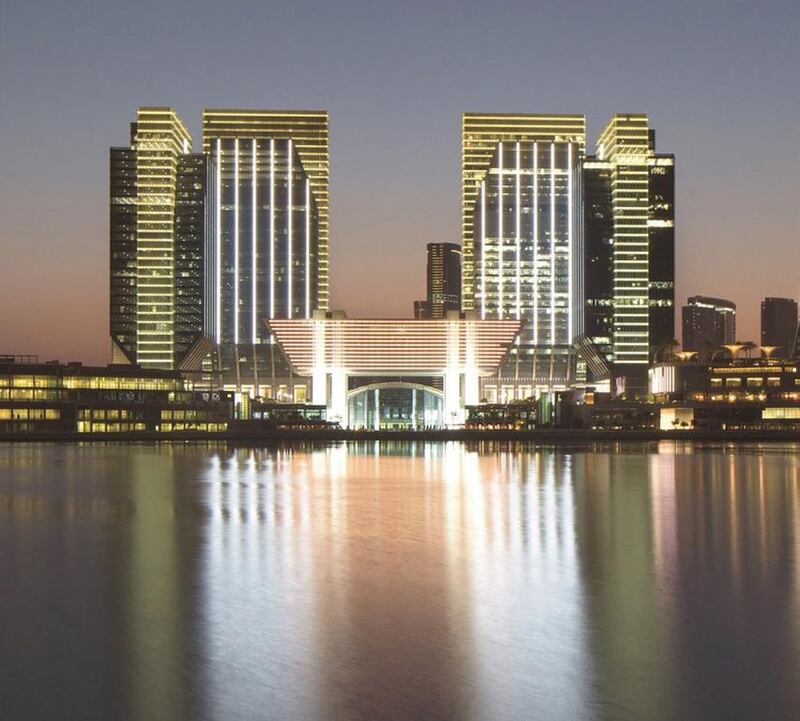The Abu Dhabi Global Market (ADGM) recently celebrated its first anniversary as a fully operational financial free zone, and Al Maryah Island has been festooned with flags proclaiming it Financial Centre of the Year (Mena region). Development of the financial services sector, to help diversify the economy away from oil, is one of the main goals of both the Abu Dhabi Economic Vision and the current Abu Dhabi Plan, and the ADGM is a key element of those efforts. So the attention focused on its progress is understandable. But is all this excitement justified?
More than 170 financial and non-financial companies have become licensed in the ADGM in its first year. Of these, about 40 per cent are retail companies operating in Galleria Mall, but eight are now authorised by the Financial Services Regulatory Authority (FSRA) to carry out regulated financial services activities in and from the ADGM. The first ADGM fund has been launched and the authorised groups include the internationally recognised names Macquarie Capital and Aberdeen Asset Management.
This growing total represents steady progress in ADGM’s first year, although at this early stage it is not yet in the same category as the 1,500-plus companies registered in the DIFC. When Abu Dhabi’s financial free zone was announced, critics were quick to claim that it could never compete with Dubai’s, that there was no room for two such centres to flourish in the Gulf, let alone within the UAE. ADGM has refuted this argument, pointing to other examples of financial hubs succeeding despite close proximity, such as Geneva and Zurich in Switzerland, and clarifying that it is not simply seeking to emulate the DIFC’s success but to carve its own niche. Indeed, ADGM has identified a number of key areas of focus in its business development efforts, particularly: wealth and asset management and private banking; funds; family offices; and fintech.
The first cohort of regulated companies reflects these objectives.
While the DIFC has more than a decade’s head start on the ADGM, comparing the ADGM’s progress against the DIFC’s first year is enlightening: the ADGM’s total of more than 170 registered entities actually exceeds that of the DIFC at the same stage of growth, even though the DIFC was launched during the pre-crisis good times while the ADGM was born into a much less stable financial world. This uncertainty and increasing competition – not only from the DIFC in Dubai but also the QFC in Doha and King Abdullah Financial District in Riyadh – are just two of the challenges that face the ADGM in its uphill marathon to become a globally respected financial centre.
The ADGM has recently begun championing its special purpose vehicle (SPV) option for use in real estate investments, asset transfers, ring-fencing and intellectual property management, joint ventures, capital-raising and securitisations. However, it is important to note that the SPV is more of a marketing concept than a legal one. Companies limited by shares and Restricted Scope Companies (RSCs) can be registered as SPVs, but an SPV is not a separate form of legal entity. There are no hard and fast rules as to what types of activities can and cannot be undertaken by an SPV. Essentially, if the entity is purely passive, it will probably qualify. If not, it will depend on the circumstances.
RSCs and other companies registered as SPVs have the advantage of being much less expensive to register at ADGM than normal private limited companies.
The RSC, a novel legal form unique to ADGM, gives the additional benefit of limited public disclosure, which may be attractive to Family Offices that want to hold and manage assets discreetly – but it can also be useful in multinational corporate groups and fund structures where passive entities are required.
The most eye-catching recent developments relate to fintech, the use of innovative technologies in the financial services sector. ADGM has ambitious aims in this arena: it wants to be the fintech hub for the whole GCC. It believes that the goal of fostering innovation in financial technology necessitates innovation in the rules that govern it too. To this end, on November 2 the FSRA launched its “regulatory laboratory” (RegLab), a set of rules that will allow fintech companies to experiment with new products and services within a controlled environment, but without immediately being subject to the usual heavy burden of regulation that might otherwise stifle innovation.
The RegLab allows a “blank-sheet” approach, whereby the FSRA will combine existing rules, applied selectively, with entirely new customised rules depending on the business model of the fintech company. The company then has a two-year window to develop its offering: a company with a viable business model graduates to the full regulatory regime of the ADGM; those who do not meet the criteria exit the RegLab.
ADGM is not alone in developing new initiatives to help grow the fintech industry. Earlier this year, the UK’s Financial Conduct Authority implemented a “regulatory sandbox” programme, through which authorised and unauthorised companies can test new financial products in a live environment. So far, 24 companies have been approved to take part. Other countries, including Singapore, Thailand, Indonesia, Malaysia as well as Hong Kong, have since jumped on board. The US and Australian authorities are considering similar initiatives.
ADGM aims to be a business-friendly environment that operates in line with international best practice. Our experience of dealing with the regulators bears that out.
In addition to a flexible and quality regulatory environment, companies that make the ADGM their home have the added certainty of being in an English law jurisdiction – unlike anywhere else in the Mena region, common law has been adopted wholesale – overseen by experienced and internationally renowned judges. One year on, it is still early days but there are signs that this unique combination is proving attractive.
Chris Macbeth is a counsel and Mariam Al Alami is a legal intern at Cleary Gottlieb Steen & Hamilton (Abu Dhabi)
business@thenational.ae
Follow The National's Business section on Twitter






